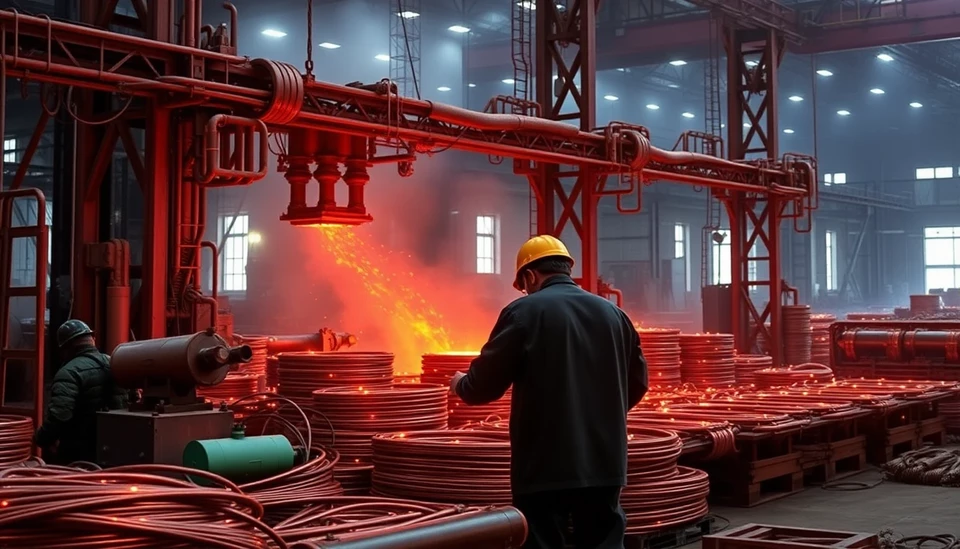
In a significant shift reflecting the current instability in the global market, numerous copper importers in China have chosen to sharply reduce their annual purchase contracts for the coming year. This decision is seen as a direct response to fluctuating prices and ongoing uncertainties that have characterized the commodities market in recent months.
The copper sector, which is particularly sensitive to economic fluctuations and demand changes, has witnessed Chinese buyers depart from their traditional purchasing practices. Historically, many of these importers established firm contracts with suppliers to guarantee their copper supply at predetermined prices, which provided stability and predictability. However, with market volatility increasing, these buyers are reassessing their strategies and expect to place smaller orders moving forward.
Presently, copper prices have shown remarkable variation, exacerbated by factors such as geopolitical tensions, evolving trade relationships, and broader economic conditions impacting growth projections, particularly in China, the world’s largest copper consumer. The uncertainty surrounding future demand, paired with macroeconomic concerns, has led several companies to reconsider their strategies and positions in the copper procurement landscape.
Industry experts suggest that while the reduced contracts may signify a short-term strategy to navigate current market conditions, it could potentially destabilize future supply chains. Suppliers, too, may need to adjust their price strategies in response to these new purchasing patterns, which could lead to an overall tightened market.
Moreover, as China grapples with various challenges, including slower economic growth and shifting demand in the manufacturing sector, the implications of this trend may extend beyond immediate contract negotiations. The copper market plays a crucial role in several industries, from electronics manufacturing to energy production, making these developments critical for understanding future economic directions.
Looking ahead, observers are keen to see whether Chinese copper buyers will adjust their purchasing strategies further or if stability in the market will encourage them to reestablish larger contracts. Regardless, this current trend underscores the delicate balance in global commodities trading and the significant impact that geopolitical and economic factors can have on market dynamics.
As the situation continues to develop, stakeholders in the copper market, spanning from miners to manufacturers, will need to stay vigilant and adaptable to the rapidly shifting landscape.
In conclusion, as China slashes its copper annual contracts, the move underscores broader uncertainties that dominate today’s commodities market, highlighting the need for agility in procurement practices amid unpredictable price movements.
#CopperMarket #ChinaCommodities #EconomicTrends #MarketVolatility #TradeUncertainties #SupplyChainImpact
Author: Megan Clarke




